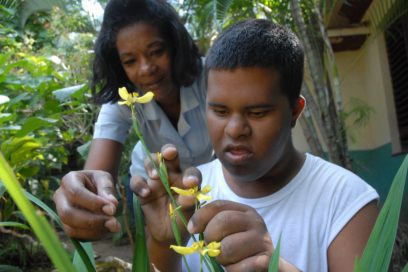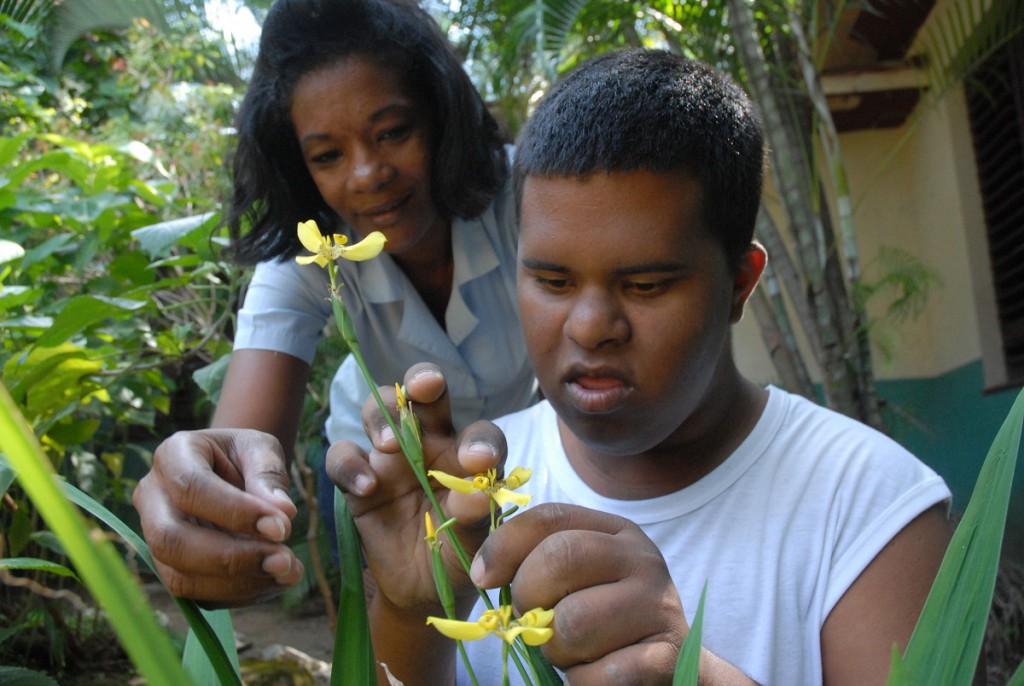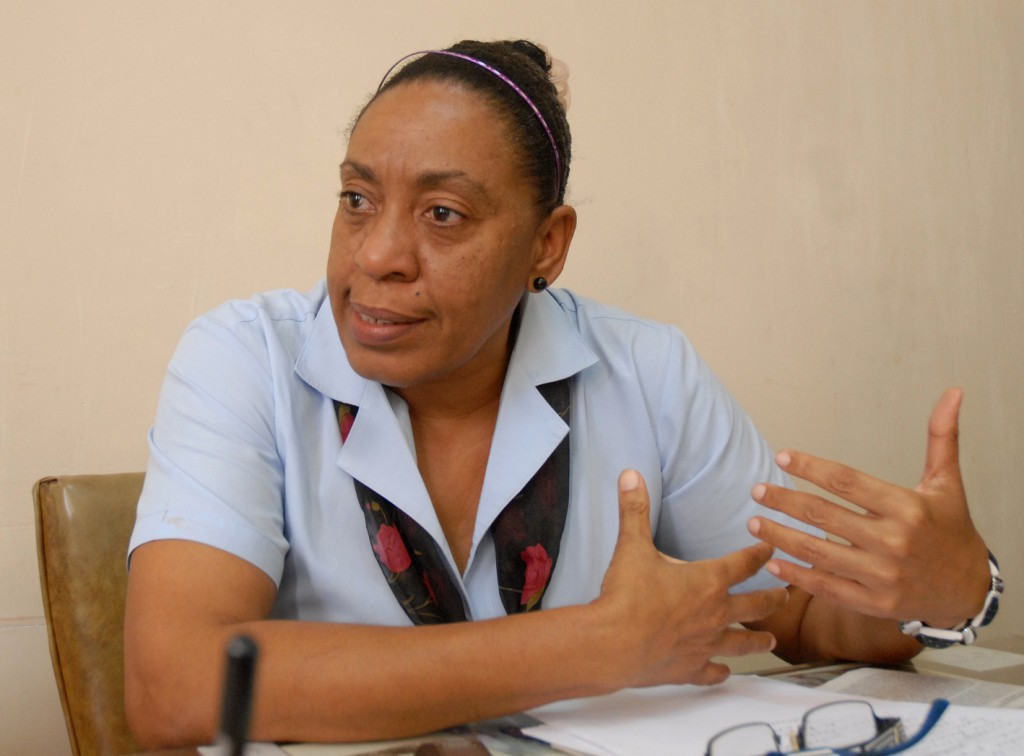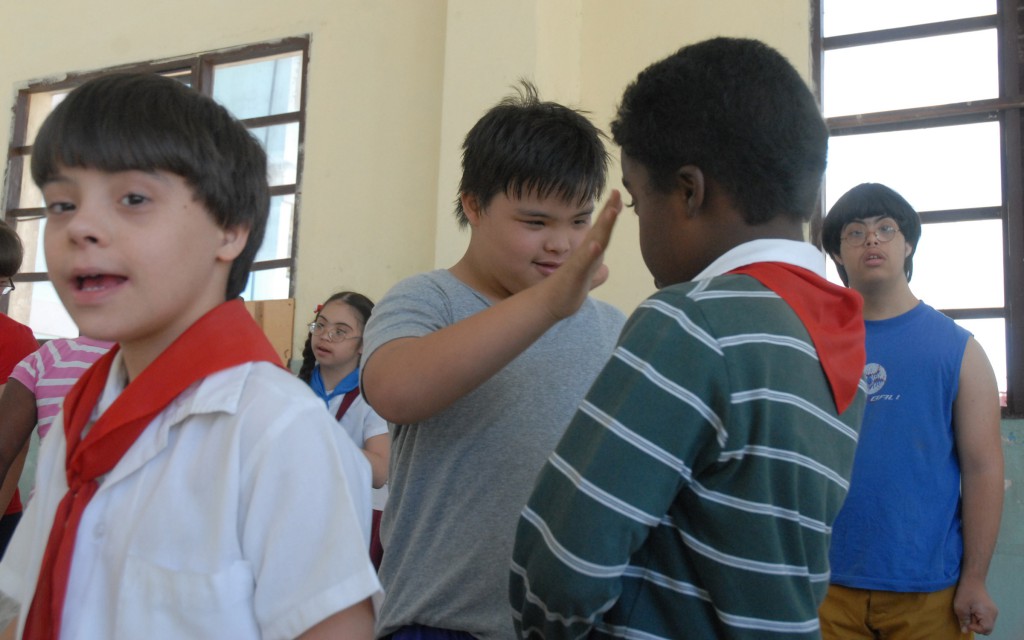Just all those who are used to listen to people suffering Down syndrome, understand them very well. They have problems with speech; but when they are not able to be understood with the words, they do it with their smiles, eyes and even their arms.
This is the way Carlos Rodriguez Hernandez is introduced to us by the director of the Special School Sierra Maestra, Pilar Medina Fuentes. He is a boy with Down syndrome. Medinas is devoted in each child and adolescent once they are registered in school, to introduce them in a useful and independent life in society.
Carlitos, as he is called, is very loved by all surrounding him in that big house is his school, where he arrived at the age of 6 coming from a special nursery too, said his workshop teacher in gardening, Ana Isabel Saenz O`Farrill, one of the persons that received him at school since he arrived.
He is now 17 and everyone hopes he will be fine and successful in his working life. He should start next course, because he has been trained for that. The most important thing for the director is to insert them in society with a job, so that they could normally perform in their neighborhoods. School keeps on monitoring them as well as specialists in their communities who should keep on monitoring them later.
“He is a very good leader, Medina said laughing, and his skills in sweeping, organizing and cleaning are really good, I believe he will do well wherever he works. We have Down people that had learned how to read and write, but for him, it has been very difficult due to his degree of intelligence disability. It has been very difficult for him to learn. So, we have been able to prepare a very laborious student and, like others, ready, happy and an active participant in all the activities.”
She noted that his labor insertion depends on his family that has helped in his education and accompanied him to school in all educative goals, what had helped in his independence behavior.
“Carlitos is not a child anymore- he is an adolescent, but everybody sees him as a child, because he has been at school for so long. He walks the neighborhood, knows everybody, has the skill to buy bread, follows some orders and it is very important for us they are accepted by the community,” she stressed.
Therapy of Affections
Caresses, hugs, sweet words is all and more that characterized every day the educative job at Siera Maestra school in Plaza de la Revolucion municipality, Havana, Cuba where 143 students are registered, 21 of them suffer down syndrome.
With all this affection, where love can do anything, Medina collects the fruit, in an extent, inherited by her mother as example.
These scholars are well known in their neighborhoods, above all, when their families promote them for their insertion in society, because sometimes they are not the problem but the people.
“Downs or other people suffering disabilities feel like anyone in society. They like to run, play, and walk the neighborhood they live in. They enjoy it, but sometimes their relatives do not permit them do it or limit them. However, when the family goes together with school, and works for their insertion, everything goes well.
Family´s Environment: more important and crucial
According to specialists in this topic, if the family does not trespass the so called challenge of acceptance, they are not able to help their children with their disability. The family need to understand there is a member of it that has different characteristics and so, it should learn to accept it.
For those who work in special education, and mainly assisting those children, it is crucial to help the family to go through all these periods of acceptance, because it is the only way to work in pursuit that person.
“It is very common the overprotection symptoms, which does not help at all, or the rejection (under covered), but we count on with very brave families that had accepted their children and love them as they are.
“An example of this is Amanda´s mother, a girl suffering Down who at the beginning was a very shy, retiring, girl. She always walked with a stoop, hiding from everybody. We have been able to do incredible things with her thanks to the school´s job and her family. She even recently won the gold medal in the Olympic Games in gymnastics.”
There is still lack of respect in society to this kind of people…
“It is true. This is a never ending task and very difficult too, but I believe that writing these kind of articles in the media will help sensitize people. It is very important the information of the school so that parents do not hide their children at home. These children have the right to participate in their communities, go to the parks, stand in the balconies, and play in the open air, because they go through the same periods like the others with their same age.
“It is important people know they have their space, things to tell, because we have to learn from them. They have the possibility to enchant us.”





